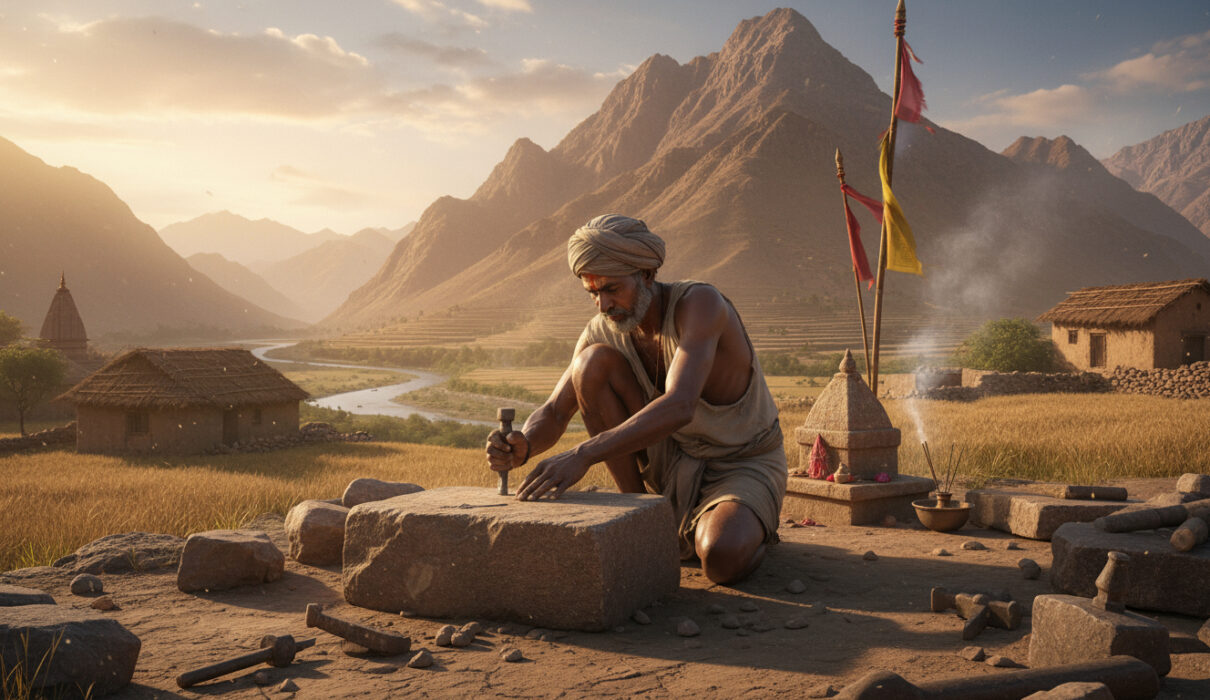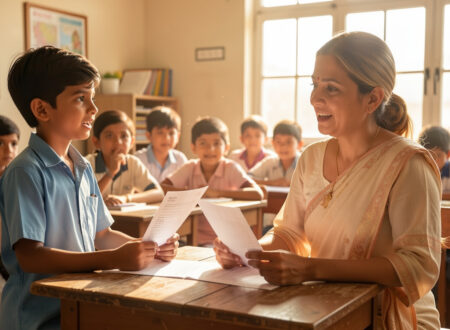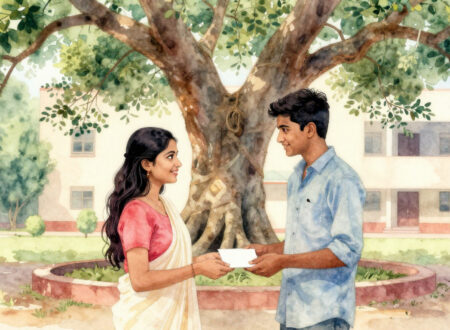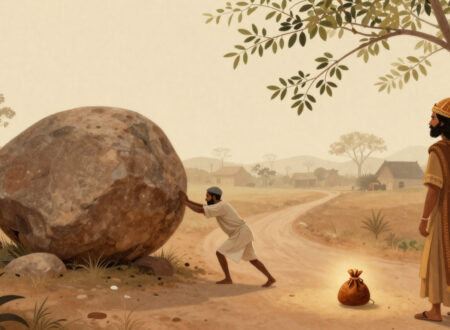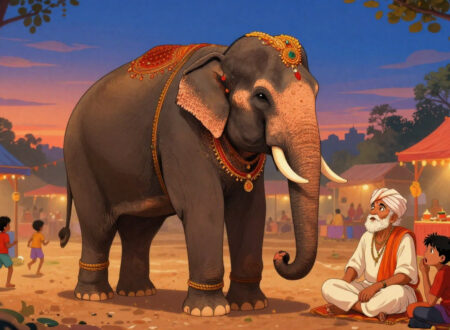In a quiet Indian village at the edge of a mountain, there lived a stonecutter named Raghav.
He worked hard every day, cutting rocks under the hot sun, shaping them into beautiful stones for temples and homes.
One afternoon, tired and drenched in sweat, Raghav looked up at the mountain peak. “Why did Bhagwan make me a poor man?” he sighed. “If only I were rich, I’d never suffer like this.”
That night, lying beneath the open sky, he whispered, “O Ishwar, make me rich, please.”
When dawn broke, he awoke in a grand house filled with silver lamps and silk curtains. “I am rich!” he cried with joy.
Days passed. Then one afternoon, he saw the Maharaj passing by in a golden chariot. “Even with all my riches,” Raghav thought, “the King is greater. I want to be like him!”
And just then, a voice echoed gently from the heavens — “Tathāstu!”
Raghav became a King. He sat on a throne, wore jewels, and commanded soldiers. But one hot afternoon, the Sun blazed fiercely above, and he groaned, “Even I, a King, cannot fight the Sun. I wish I were the Sun!”
Again the divine voice said, “Tathāstu!”
Raghav became the Sun, spreading golden rays across the sky. But as he shone brightly, a soft cloud drifted before him and blocked his light. “Even the cloud can stop me,” he said angrily. “I want to be the cloud!”
And once more, the voice from above said, “Tathāstu!”
Now Raghav floated in the sky as a proud cloud, pouring rain over mountains and rivers. But soon, the wind blew hard and pushed him away. “The wind is stronger than me!” he shouted. “I want to be the wind!”
“Tathāstu!” the divine voice replied.
He became the wind, roaring across fields and valleys, shaking trees and bending rivers. But when he tried to move a mighty mountain, he failed. “This mountain is mightier than I am!” he cried. “I want to be the mountain!”
The voice answered one last time, “Tathāstu!”
Raghav stood tall and unmoving as a mountain, proud and unshakable. But one morning, he felt something sharp cutting into his side. It was a stonecutter, hammering away at the rock.
He watched in shock — the humble man was stronger than the mighty mountain.
Tears filled his eyes. “O Bhagwan, make me myself again,” he prayed.
And at once, he was Raghav again — the simple stonecutter. But this time, when he lifted his hammer, his heart was full of gratitude.
He finally understood that every role has its own strength, and contentment is the greatest power of all.
Moral of the Story:
Be happy with who you are — real strength comes from gratitude, not power.
🧠 Vocabulary
| Word | Meaning |
|---|---|
| Drenched | Completely wet |
| Chariot | A royal cart used by kings |
| Groaned | Made a sound showing pain or unhappiness |
| Contentment | Feeling satisfied and peaceful |
| Gratitude | Thankfulness for what one has |
🌍 Glossary
| Term | Explanation |
|---|---|
| Bhagwan / Ishwar | Common Indian words for God |
| Maharaj | A respectful title for a king or ruler |
| Tathāstu | A Sanskrit word meaning “So shall it be,” said when granting a wish |
| Stonecutter | A craftsman who shapes stone for temples and buildings |
| Valley | Low land between mountains |


